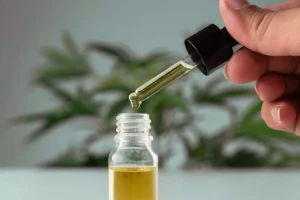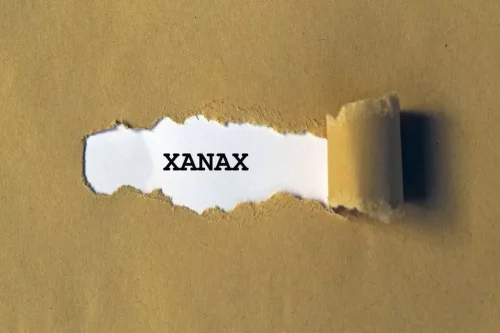Unstable vital signs increase the risk of complications and can be managed with medications. People who experience severe withdrawal symptoms or DTs may require hospitalization or intensive care unit (ICU) treatment during alcohol. “These improvements can be observed not only in people who abstain from alcohol but in people who reduce heavy drinking,” Volpicelli says. what happens when you stop drinking Volpicelli says that some of the negative effects of alcohol on mental health can be reversed if you stop drinking. Many people with alcohol use disorder also have other mental health conditions like depression, anxiety, bipolar disorder, or schizophrenia. A big part of alcohol recovery is taking steps to improve your lifestyle through changes like diet and exercise.
Quitting Alcohol Timeline: What to Expect in Weeks 1-3
- By week three, you will have saved about $450–$600 from not buying alcohol.
- It is worth mentioning that nutritional status improvement occurs when someone strop drinking, which is one big reason why people may see many of the above improvements with sobriety.
- Carbamazepine works by slowing down electrical signals in the brain that can cause symptoms.
- For one, drinking alcohol makes falling and staying asleep much harder.Alcohol also relaxes the muscles in your throat, so you’re more likely to have problems like snoring or disorders like sleep apnea.
- “Once it leaves the stomach and it gets metabolized, it hits the small intestine,” Dr. Sonpal says.
As you continue to commit to long-term recovery, support group meetings like Alcoholics Anonymous (AA) or online support communities might be helpful. It’s typical for withdrawal symptoms to begin within hours to a day or two after you have your last drink. Symptoms are often at their worst around 24 to 72 hours after you stop drinking. When a person drinks heavily, frequently, or for prolonged periods of time, their brain compensates for alcohol’s depressant effects by releasing more stimulating chemicals (compared to when a person does not drink).
What happens when you stop drinking for 30 days
Bloating may be worse when alcohol is combined with sugary and carbonated mixers. During alcohol detox, medication can ease your discomfort and prevent symptoms from worsening. According to Hilary S. Connery, MD, PhD, the clinical director of the division of alcohol, drugs, and addiction at McLean Hospital in Boston, withdrawal medications are suitable for most people. If severe vomiting is present, you may need to receive IV fluids so you don’t become dehydrated.
Alcohol and Bupropion: 4 Things to Know About This Risky Combination
If you need a break from alcohol, going alcohol-free for a month or more can bring about many physical and mental health benefits. Alcohol can worsen depression and be an emotional crutch, making it difficult to experience true happiness outside of drinking. Stopping alcohol can make you feel happier by allowing you to experience positive emotions without alcohol.
Choosing to live without alcohol not only reduces the risk of physical health problems but also mental health issues such as depression and anxiety. Opting for sobriety extends benefits to the cardiovascular (heart and blood vessels) system. Ceasing alcohol consumption is crucial in preventing the elevated risk of high blood pressure, irregular heartbeats, and stroke that excessive drinking and even a single bout of drinking can pose. In the third week, if hypertension or high blood pressure is an issue, you may notice lower blood pressure.
Alcohol Metabolism in the GI Tract
However, when you stop drinking, your risk of developing these diseases decreases. It is well established that impaired liver function affects other organs, and vice versa. For example, high serum NEFA levels in alcohol-fed rats arise from alcohol-induced lipolysis in adipose tissue, generating serum NEFA levels that exacerbate hepatic fat accumulation. This occurs because hepatocytes rapidly take up circulating NEFA,22 which, upon their entry into hepatocytes, are esterified with glycerol to form triglycerides. Also noteworthy is that alcohol cessation enhances hepatic fatty acid oxidation. Reaching for a glass of wine is common when you’ve had a bad day, but alcohol is a depressant, which means it can affect our thoughts, feelings and actions – and sometimes our long-term mental health.
- Alcohol withdrawal causes a range of symptoms when a person with alcohol use disorder stops or significantly decreases their alcohol intake.
- Meanwhile, the brain is producing more and more neurotransmitters, making a person further imbalanced.
- The original research cited in this review was supported by Merit Review grants BX and BX from the U.S.
Many experts recommend the BRAT diet for diarrhea, which includes bananas, rice, applesauce and toast (hence the acronym BRAT). All of these foods are soft and bland, which might help settle your stomach. If it doesn’t help you, there’s no need to strictly stick to it when you’re experiencing symptoms. Emily Lachtrupp is a registered dietitian experienced in nutritional counseling, recipe analysis and meal plans.
- Although some people find drinking alcohol helps them get to sleep more quickly, the quality of sleep is affected.
- The dehydrating effect of alcohol affects your skin and your hair significantly.
- There are specific treatments available for anyone who wants to stop drinking—even after long-term, chronic alcohol use.
- If you need a break from alcohol, going alcohol-free for a month or more can bring about many physical and mental health benefits.
- Unstable vital signs increase the risk of complications and can be managed with medications.
- That’s because alcohol use disrupts communication in our immune system, the body’s way of safeguarding against viruses and bacteria.







